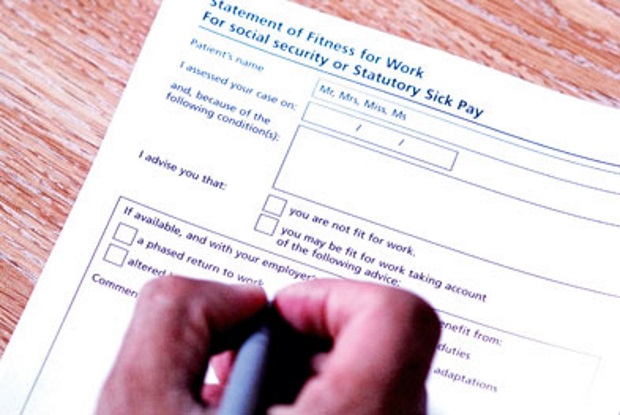Rishi Sunak will announce today a tightening of the rules for long-term sick leave in a bid to reverse a rise in the number of Britons who have permanently dropped out of the workforce.
The move comes after figures show a rise in long-term illness, post pandemic which has seen the level of worklessness at its highest rate in a decade
9.4 million Britons aged 16 to 64 – 22% of that age group – are neither working nor unemployed, up from 8.55 million just before the pandemic, according to official data. Of those, 2.8 million are long-term sick and 206,000 are temporarily ill.
In a speach today the Prime Minister is expected to unveil his “new welfare settlement,” which is expected to include plans to cut Britain’s “unsustainable” welfare budget by making it harder to get fit notes from doctors.
Sunak wants to test shifting the responsibility for assessment from family doctors to healthcare workers tasked with providing “an objective assessment of someone’s ability to work and the tailored support they need to do so” and will warn against “over-medicalising the everyday challenges and worries of life”
“We don’t just need to change the sick note, we need to change the sick note culture so the default becomes what work you can do – not what you can’t,” he will say
Work and Pensions Secretary Mel Stride told Sky News on the morning media round that:
‘We want to change the system, so individuals who suffer from long-term mental health-related sickness will get the healthcare that they need.’
Ben Harrison, Director of the Work Foundation at Lancaster University, said:
“The Prime Minister is right that more action to support those who want to work is badly needed. Over 700,000 more people have become economically inactive due to long-term sickness since the pandemic began, and without substantive action that number may rise further.
“But making it harder for people to access health related benefits, and pushing people who are managing physical and mental health conditions into taking ‘any job’ with threats of closing their benefit claims altogether will heighten the pressures faced by those people and may make their condition worse.
“Instead, the focus should be on de-risking returning to work for those with long-term health conditions, and critically, on stemming the flow of people who are leaving work due to sickness.
“That means making big improvements to the quality of work on offer so that they can find sustainable employment. The Government has failed in its promise to deliver an Employment Bill this Parliament, leaving 6.8 million people in severely insecure jobs which can have a negative impact on individuals’ health and mean they cycle in and out of work and remain dependent on Universal Credit. Addressing this must be a priority in the next Parliament.
“We also have to ensure that job flexibility is a day one right so that those with health conditions can have confidence they can agree arrangements that work for them when applying for roles. And we must strengthen statutory sick pay, so that those with fluctuating conditions can sustain employment over the long-term.”







